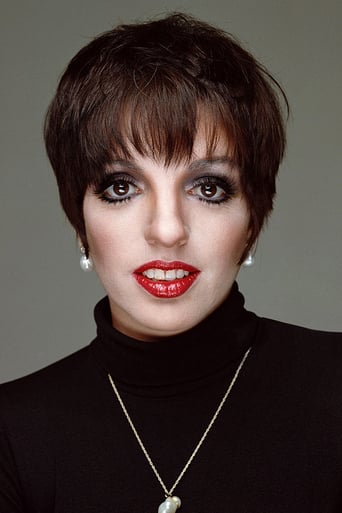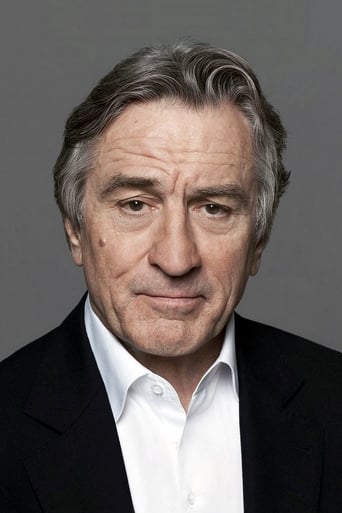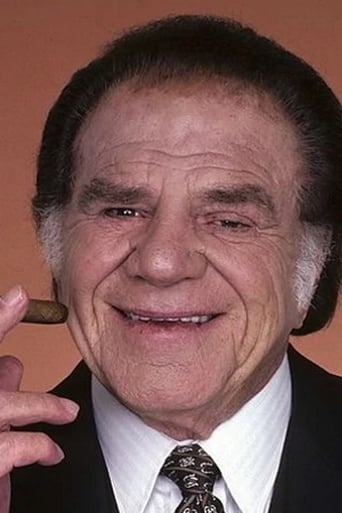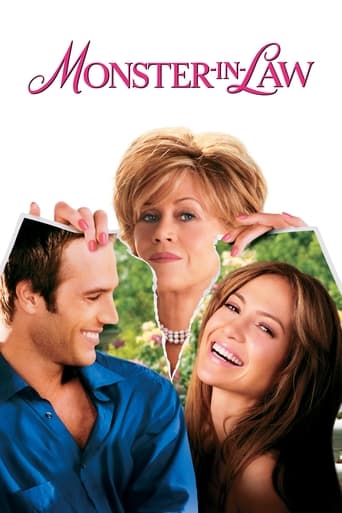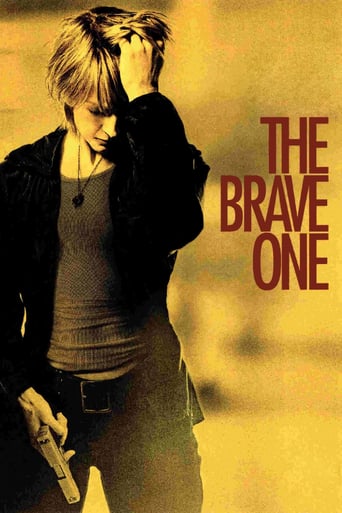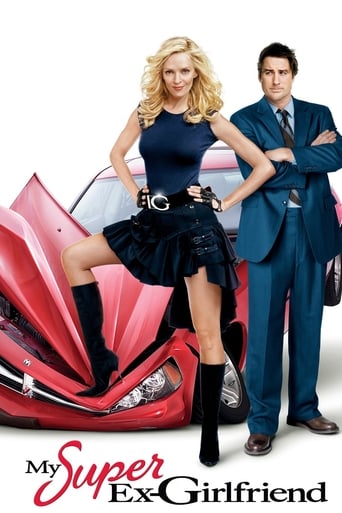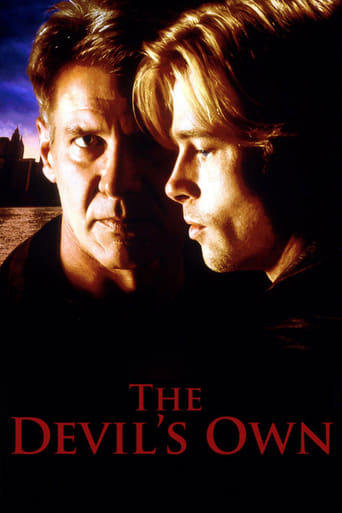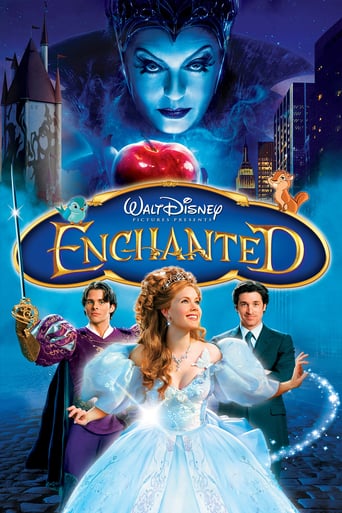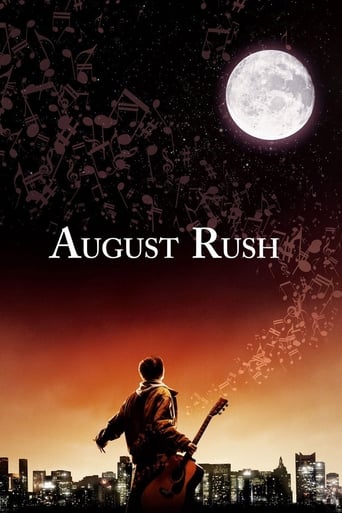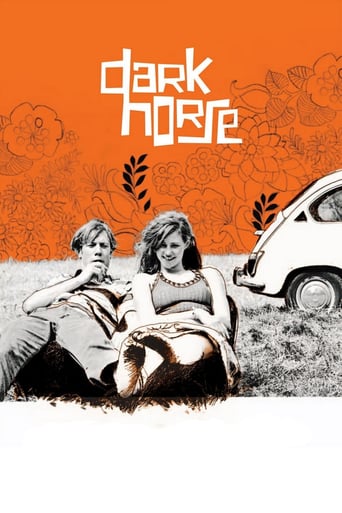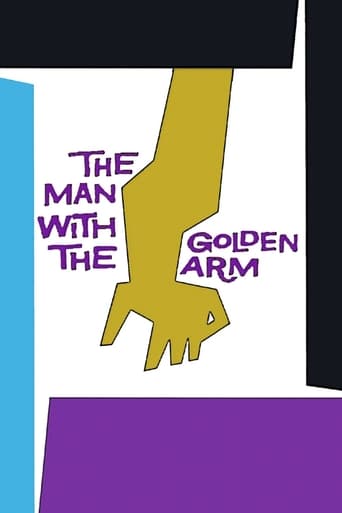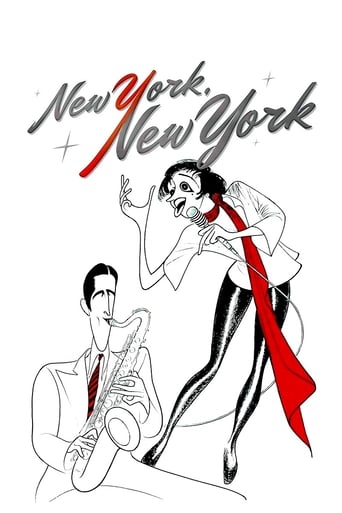
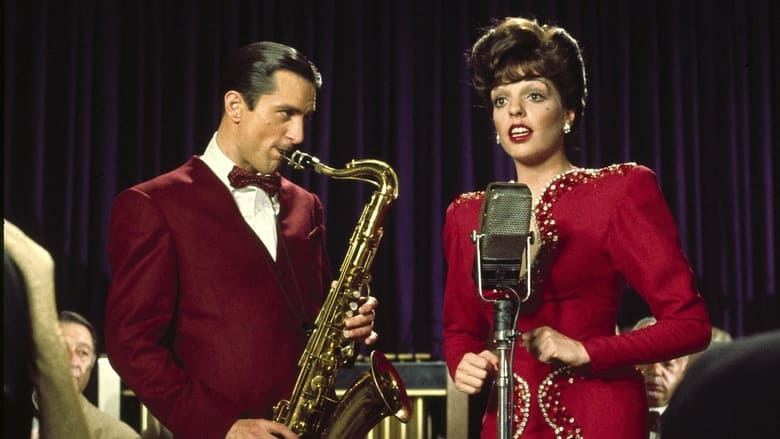
New York, New York (1977)
An egotistical saxophone player and a young singer meet on V-J Day and embark upon a strained and rocky romance, even as their careers begin a long uphill climb.
Watch Trailer
Cast
Similar titles
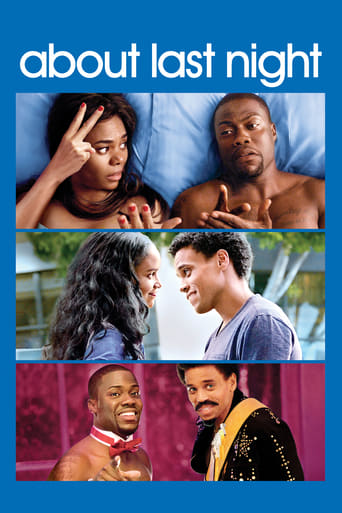
Reviews
Yawn. Poorly Filmed Snooze Fest.
Sick Product of a Sick System
A lot of fun.
A different way of telling a story
Coming from the success of his previous films, Scorsese went back to the 40s and made a tribute to his home town and the classic Hollywood genre – although he refused to call it a musical, mentioning Billy Wilder's statement that you can't call a film a musical unless characters sing in situations where you don't expect them to.With almost a three-hour running time, this highly stylized film filled with music and a rambling plot was a box-office failure and only a few critics giving a positive review, including Roger Ebert who said that if we forgive the movie its confusions we're left with a good time. Robert De Niro, collaborating for the third time with Scorsese for his least memorable character with the director, was not charming in this film and almost coming off as an annoying selfish character (and maybe that's the point), but Liza Minelli was great when performing the songs, especially in the highest point of the film when she sang its theme song, which is more memorable than the film itself – an indication that it was one of Scorsese's rare miscarriage as a director.The failure of the film led his cocaine addiction into rock bottom, which obviously he will recover from with flying colors – bouncing back in the next decade for a brand new chapter of his life and career.
New York New York is a musical about a passionate jazz player and his struggles with love and career with a Hollywood love letter thrown in as well. Now which film does this remind everyone of? Just like La La Land, New York New York is a homage to the golden age of musicals but packs Scorsese's intensity. Robert DeNiro is in his 70's prime and knocks it out of the park with his performance, easily the best feature of the film. Liza Minelli does a decent job but she's there for her singing and does great in that. However this is easily the most flawed film I have seen from Scorsese, it stands at an enormous run-time of nearly three hours, there's more than a few scenes which could be trimmed down, especially during the first hour and a half, I think a lot can be blamed on Scorsese unable to handle a big budget film back then, the sets were expensive so were the cars and the props but he was spending way too much time in pointless scenes. However the film really picks up and the last one hour is where this movie truly shines. DeNiro was just brilliant in his role of an insecure but ambitious saxophonist. A film despite it's flaws should give you a handful of scenes which will stay with you once the film is over, one scene in particular will always stay with me, DeNiro is angry and frustrated with his wife Minnelli but keeps it bottled in and it comes out during a magnificent scene with him and his saxophone playing an energetic and a furious melody while his eyes rain down fireballs on her, no dialogue just music and body language.
I love old Big Band music and the history and trials of their times and the road. But I would Never let my daughter see this for fear she might think it is OK to be mentally abused by someone who professes to love her.The plot is weak, there are no redeeming qualities of this film....Liza is a wimp.....Robert D even wears the same suit all the time!Its difficult to believe that Martin Scorsese to have created it.Shame on This for even showing it....and for Robert De Niro and Liza Minnelli for agreeing to be a part of it.I wish I could say something positive, but this is a bad message.
Director Martin Scorsese is best known for his searing portrayals of urban life and its corruptions, as detailed in acclaimed films like "Taxi Driver" (1976), "Raging Bull" (1980) and "Goodfellas" (1990), but here, in the first of many directorial moments where he demonstrated his verisimilitude, he lovingly crafted a musical with a twist. "New York, New York" (1977) has the glorious look of an MGM Technicolor musical of the late forties or early fifties, from the plentiful sets recreating the artifice of the Big Apple in large sound stages in Hollywood, to the costumes and makeup, Scorsese flawlessly imitates the style, the look of another era of cinema. Yet if this was all there was, the film would be an empty, hollow stylistic exercise; instead, the characters that populate this entirely synthetic world are completely real, De Niro and Minnelli creating complex, fascinating characters. Working like the great improvisatory director John Cassavetes, Scorsese coaxes flowing performances from his two leads, detailing their relationship and the conflicts that stem from their deeply musical, creative personalities. Lionel Stander has a memorable supporting role, his distinctive, strong New York accent dominating his scenes. However, this film is defined by the trio of Scorsese, De Niro and Minnelli who collectively define the film.The production design by Boris Leven, who himself had designed "West Side Story" (1961), is excellent; the cinema's view of the Big Apple circa 1945 once more brought to the screen and counterpoints the realism of the characters in a satisfying contrast. Famed Hungarian cinematographer László Kovács shoots in the characteristically Baroque style of the forties while employing some incredible crane shots to remarkable effect.However, one of the key facets for any musical to be a success is its score, and with songwriters John Kander and Fred Ebb, who wrote the music for the original stage productions of "Cabaret" (1966) and "Chicago" (1975), the film achieves magnificently. The title song, subsequently covered by Frank Sinatra, is justifiably iconic, but "The World Goes Around" and the lavish ironic musical number "Happy Endings", invoking the extravagant set pieces of Busby Berekly in the 1930s musicals also help assure the picture's position as the finest original musical of the last forty years.A passed over classic, a forgotten great of New American Cinema of the 1970s, this deserves to be seen once more and appreciated for its tremendously fresh achievement.
